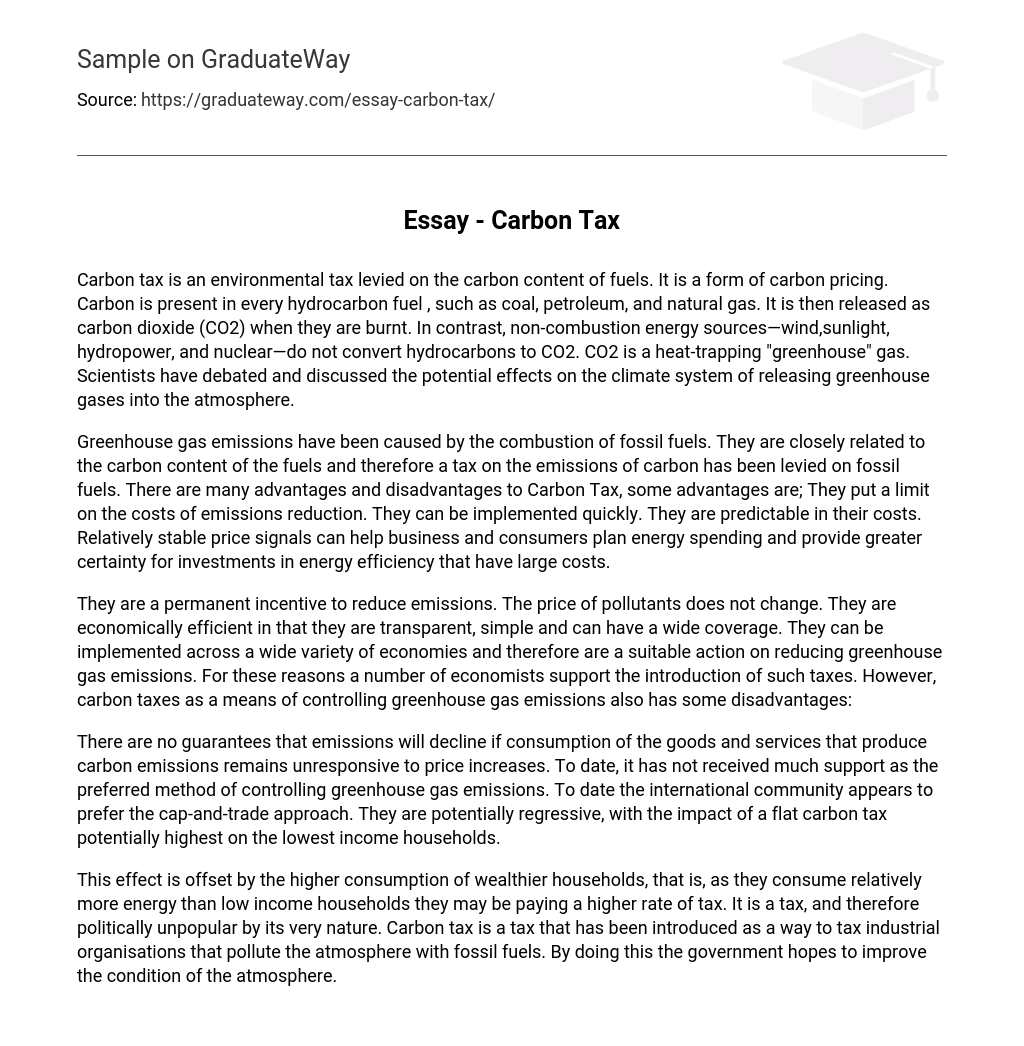Carbon tax is an environmental tax levied on the carbon content of fuels. It is a form of carbon pricing. Carbon is present in every hydrocarbon fuel , such as coal, petroleum, and natural gas. It is then released as carbon dioxide (CO2) when they are burnt. In contrast, non-combustion energy sources—wind,sunlight, hydropower, and nuclear—do not convert hydrocarbons to CO2. CO2 is a heat-trapping “greenhouse” gas. Scientists have debated and discussed the potential effects on the climate system of releasing greenhouse gases into the atmosphere.
Greenhouse gas emissions have been caused by the combustion of fossil fuels. They are closely related to the carbon content of the fuels and therefore a tax on the emissions of carbon has been levied on fossil fuels. There are many advantages and disadvantages to Carbon Tax, some advantages are; They put a limit on the costs of emissions reduction. They can be implemented quickly. They are predictable in their costs. Relatively stable price signals can help business and consumers plan energy spending and provide greater certainty for investments in energy efficiency that have large costs.
They are a permanent incentive to reduce emissions. The price of pollutants does not change. They are economically efficient in that they are transparent, simple and can have a wide coverage. They can be implemented across a wide variety of economies and therefore are a suitable action on reducing greenhouse gas emissions. For these reasons a number of economists support the introduction of such taxes. However, carbon taxes as a means of controlling greenhouse gas emissions also has some disadvantages:
There are no guarantees that emissions will decline if consumption of the goods and services that produce carbon emissions remains unresponsive to price increases. To date, it has not received much support as the preferred method of controlling greenhouse gas emissions. To date the international community appears to prefer the cap-and-trade approach. They are potentially regressive, with the impact of a flat carbon tax potentially highest on the lowest income households.
This effect is offset by the higher consumption of wealthier households, that is, as they consume relatively more energy than low income households they may be paying a higher rate of tax. It is a tax, and therefore politically unpopular by its very nature. Carbon tax is a tax that has been introduced as a way to tax industrial organisations that pollute the atmosphere with fossil fuels. By doing this the government hopes to improve the condition of the atmosphere.





